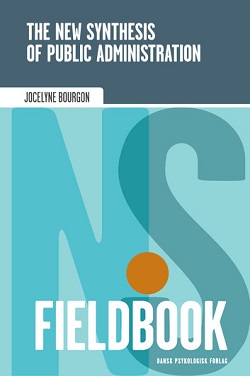Review: The New Synthesis of Public Administration Fieldbook
ETHOS Digital Issue 01, Oct 2017

DETAILS

The New Synthesis of Public Administration Fieldbook
Jocelyne Bourgon Dansk Psykologisk Forlag A/S, Denmark, 2017.
If there was ever a book not to judge by its title or its cover, it is this. Jocelyne Bourgon’s latest book, The New Synthesis of Public Administration Fieldbook, is undoubtedly the best tome to date about public service in the 21st century.
The “New Synthesis” to which the title refers is an on-going initiative by an informal network of senior public service officials around the world to rethink what it means to govern. Their aim is to offer a different mental map by which future generations of bureaucrats can navigate the increasingly turbulent waters surrounding public administration in a hyper- connected yet often polarised world.
The underlying premise is that reforms over the last few decades have weakened the public service ethos. Upholding the collective long-term interests of society has become more difficult. At the same time, social media and the 4th Industrial Revolution are fuelling an extraordinary burst of social, economic and political transformation. Rising inequality, jobless growth, “echo chamber” polarisation of political views, the disproportional power of lobbyists in US politics and policymaking by Twitter are just some of the issues posing increasingly complex challenges for governing well. The ideals of liberal democracy are under pressure. As Bourgon reminds us: “Having a say is not the same as having a vote.”
But practitioners lack intellectual support. The academic discipline of public administration has lost relevance. It disgracefully fails to generate the new ideas needed in a fast changing environment on how to govern effectively, not just efficiently. The book presents a scathing critique of vast outpourings of literature that have no practical use (“Policy failures are failures of concepts”). That chapter, at the least, should be required reading for all academics and students in the field.
Bourgon writes with the admirable clarity to be expected from a former cabinet secretary, and so lacking in too many jargon-laden journals of public administration. She offers pithy insights on the functions of a modern state: compliance, performance, emergence, resilience; leveraging, engaging, synthesising and discovering, not least in order “to generate viable solutions to complex issues and seemingly intractable problems.” She rightly emphasises a focus on system-wide outcomes, and the urgent need to rethink cost-benefit analyses to capture more adequately broad societal benefits.
Her analogy of “dark matter” in astronomy to explain the importance of citizen engagement is memorable. The idea that government’s role is to transform people into citizens, not just achieve satisfaction with public service delivery, is essential for creating effective citizenship. Innovation should be recast, from change in government processes to recognising the role of the state in transforming society. “The visible role of the State has been operating well before the invisible hand of the market could take on a role.” Foresight approaches are required to lift the ability of public sector leadership to envision the world as it could be.
The book helpfully provides instructive examples throughout, including from Sarawak and Singapore (notably the transformation of the prison service mindset here from locking criminals up to steering offenders into not re-offending).
A few niggles: Bourgon surprisingly uses private sector terminology (such as “value-chain”) rather than public values. She does not argue for the spare capacity needed to think about fundamental ideas and principles, without which governments remain reactive rather than having the bandwidth to anticipate. Nor does she follow her argument to its logical conclusion of re-organising government from sectoral ministries to departments for societal results (which is being explored in Scotland, for example). Some of the detailed description of the New Synthesis process could have been edited out.
Finally, back to the title: the purpose of a “field book” is to record technical observations and measurements. Public administration, however, has suffered enough already from the technocratic. What this splendid volume should have been called, to attract the wide readership it richly deserves, is: How the Hell Can We Govern Well? A Polemic for the 21st Century. That may not resonate with the book’s Danish publishers, but as Kierkegaard would undoubtedly have cautioned public service officials: Livet må forstås baglæns, men må leves forlæns (Life can only be understood backwards, but must be lived forwards).

